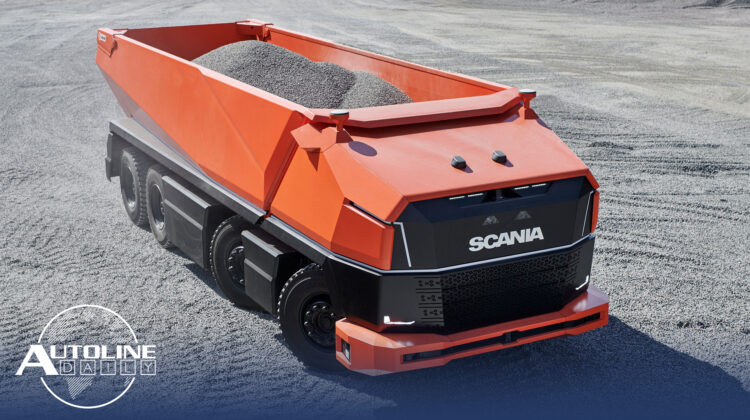
Follow us on social media:
Runtime: 7:06
0:07 Diesel Emission Scandals Not Going Away
0:48 Renault Wants Another Shot at FCA Merger
1:34 NIO Investor Hit Hard by Decline
2:45 Scania Develops Cabless AV Truck
3:35 Peugeot Modifies Van for the Outdoors
4:12 Volvo Highlights Battery Safety in XC40 EV
5:08 Skilled Trades Ripe for Reform
Visit our sponsors to thank them for their support of Autoline Daily: Bridgestone and Kiekert.
This is Autoline Daily reporting on all aspects of the global automotive industry.
DIESEL EMISSION SCANDALS NOT GOING AWAY
We’re starting to wonder if accusations of automakers cheating on diesel emission regulations will ever go away. Yesterday, German prosecutors fined Daimler nearly $1 billion because it certified certain diesel vehicles for passing emission tests even though they did not. And in the U.S., prosecutors indicted a diesel calibration manager at FCA for cheating on diesel emission certification. Along with other FCA employees, he’s charged with conspiracy, clean air act violations, wire fraud and making false statements, even to FCA’s internal investigators.
RENAULT WANTS ANOTHER SHOT AT FCA MERGER
Speaking of FCA, Renault’s chairman Jean Dominique Senard, says he would welcome another run at having FCA join the Renault-Nissan-Mitsubishi alliance. Bloomberg reports that Senard says he would be delighted to do a deal. The whole project fell apart last June because Nissan would not go along with the deal. It’s still mad that Renault owns 43% of Nissan stock, while Nissan only owns 15% of Renault. Now it looks like Renault is open to a more equitable balance, and it that happens, look for FCA to join the alliance, which would make it the largest automaker in the world by a wide margin.
NIO INVESTOR HIT HARD BY DECLINE
Investors that bet heavy on the Chinese EV startup NIO are going through a bloodbath. A Scottish investment firm called Baillie Gifford bought 100 million shares of NIO for about $670 million. Today those shares are worth only $198 million. Baillie Gifford is also the second largest shareholder in Tesla after Elon Musk, where it has made a tidy profit. But this also shows that even though the future may be electric, it’s still an extremely risky segment to invest in.
SCANIA DEVELOPS CABLESS AV TRUCK
Last year, Volvo Trucks revealed an autonomous, trailer-hauling vehicle that doesn’t have a cab. And now its Swedish rival, Scania, is doing the same thing. Called the AXL, the concept is designed for mines or large construction sites. But unlike Volvo’s truck which is electric, Scania’s runs on biofuel. It’s built on an existing Scania truck chassis and uses cameras, radar, LIDAR and GPS to navigate. And to communicate with people outside the truck, the headlights will turn on when it recognizes someone to let that person know the truck “sees” them. Autonomous trucks are already being used at mines and construction sites but those have a cab and safety drivers to take over if necessary.
PEUGEOT VAN PERFECT FOR OUTDOORS
Here’s a cool concept that caught our eye. The BOXER 4X4 CONCEPT is Peugeot’s idea for the ultimate recreational vehicle. It has unique tires, all-wheel drive and the suspension has been raised to improve ground clearance. The large interior features a table behind the driver’s seat and it has enough space to accommodate up to 3 people on a long-term basis. There’s even room on the roof for a bicycle and full-size canoe. Overall, it has a pretty aggressive look and if there were a European version of the A-Team, we would probably see them driving this thing.
VOLVO HIGHLIGHTS BATTERY SAFETY WITH XC40 EV
Volvo is coming out with its all electric XC40 next month, and claims it’s the safest CUV yet. Since there’s no lump of an engine up front, engineers were able to completely redesign the front end structure. The battery is protected by an extruded aluminum safety cage which was embedded in the middle of the car’s body structure, creating a built-in crumple zone. Even the rear end structure was redesigned to divert crash forces away from the passenger cabin. We’ll have to see how this goes for Volvo. So far it looks like the key to success with EVs is by using a dedicated platform, not by modifying an existing one.
SKILLED TRADES RIPE FOR REFORM
The UAW strike at GM shows no sign that it will come to an end anytime soon. While the union wants higher pay, better profit sharing and fewer temporary workers and other things, at some point it’s going to have to help GM put a lid on rising labor costs, which are the highest in the US auto industry.
One area that is ripe for reform involves the skilled trades. To become a skilled trades person at GM, Ford or FCA you have to go through a four year training program. At the end of that you get a journeyman’s card but for only one specific skill. You get your card to be an electrician, a millwright, a machinist, or a tool and die worker. It’s a system designed to force the automakers to hire more skilled trades people.
Meanwhile at the transplants it’s a much different situation. At Honda, for example, trainees go through a 2-year program at a local community college, where they spend part of the week at school and part of it on the factory floor where they put their learning to use. And they learn all those trades, not just one. In fact, Honda doesn’t even call them skilled trades people, they call them maintenance people. Once they graduate they start at $60,000 a year, not including benefits. And most of those graduates are young, only 21 or 22 years old.
These graduates really know what they’re doing. Honda has excellent uptime and safety records. And there’s no reason why this wouldn’t work at GM, Ford and FCA.
And with that we wrap up today’s report, thanks for watching.
Thanks to our partner for embedding Autoline Daily on its website: WardsAuto.com

John McElroy is an influential thought leader in the automotive industry. He is a journalist, lecturer, commentator and entrepreneur. He created “Autoline Daily,” the first industry webcast of industry news and analysis.




